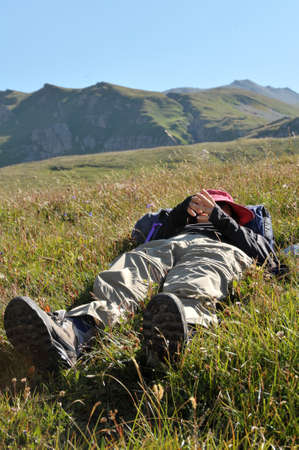Introduction to Sustainable Hiking Clothing
When venturing into the UK countryside, the clothing you choose plays a significant role in shaping your outdoor experience. The rolling hills of the Lake District, the rugged coastlines of Cornwall, and the misty peaks of Snowdonia all offer unique challenges—not just for your stamina, but for your kit as well. Choosing hiking apparel made from organic and recycled materials is more than just a trend; it’s a conscious response to environmental concerns that directly affect these cherished landscapes. The unpredictable British weather—one minute sunny, the next beset by drizzle—demands garments that perform reliably while treading lightly on the planet. Opting for organic and recycled fabrics reduces reliance on virgin resources, minimises chemical use, and helps protect the delicate ecosystems that make our countryside so special. In this guide, we’ll explore why sustainable materials matter for hikers in the UK and how they can help preserve both your comfort and our wild places.
Key Features of Organic and Recycled Hiking Gear
When selecting hiking clothing for the British countryside, especially pieces crafted from organic or recycled materials, its essential to focus on certain attributes that ensure both comfort and environmental responsibility. The unique climate and terrain in the UK demand gear that not only meets ethical standards but also performs reliably under varied conditions. Here’s a breakdown of the key features you should consider:
Vital Qualities to Look For
| Feature | Why It Matters | UK Countryside Considerations |
|---|---|---|
| Breathability | Keeps you comfortable by allowing moisture and heat to escape, reducing sweat build-up. | Essential during unpredictable British weather; prevents overheating on ascents and chills during pauses. |
| Water Resistance | Protects against rain and damp conditions without relying on harmful chemical coatings. | Crucial for year-round walking in often wet environments such as the Lake District or Scottish Highlands. |
| Layering Potential | Makes it easy to adapt to changing temperatures by adding or removing layers. | The UK’s variable weather means you might experience sunshine, wind, and rain all in one walk—versatile layering is a must. |
| Ethical Manufacturing Practices | Ensures fair labour, reduced environmental impact, and transparency throughout the supply chain. | Supports brands that align with values of sustainability and social responsibility popular in British outdoor communities. |
Breathability and Comfort
Organic cotton, bamboo blends, or recycled polyester fabrics are often engineered with ventilation panels or mesh inserts. This is particularly useful for long hikes across moorland or up fells where temperature regulation can be challenging. Always check if the garment lists breathability ratings (e.g., g/m²/24hr) to compare products effectively.
Water Resistance Without Compromise
The best eco-friendly hiking clothes utilise natural waxes or plant-based waterproof treatments rather than PFCs (perfluorinated chemicals). Look for garments labelled “PFC-free” or those certified by independent organisations like Bluesign® or OEKO-TEX® as assurance of safer water-repellent technologies suitable for the UK’s notorious drizzle.
Layering Potential: Building a Modular Kit
A good kit includes a base layer, insulating mid-layer, and a protective shell. Opt for items that are lightweight yet warm (such as recycled fleece) and cut for easy layering without bulk. Many UK hikers favour modular systems so they can quickly adjust to shifting weather on paths like the Pennine Way or South West Coast Path.
Sourcing Ethically-Made Clothing
Brands leading the way in organic and recycled hiking gear will provide detailed information about their supply chains. Look for Fair Trade certifications or local manufacturing where possible—this not only supports global ethics but also resonates with the British value placed on community and traceability. Choosing gear that aligns with these principles ensures your countryside adventures are both comfortable and conscientious.

3. Recommended Brands Available in the UK
Finding genuinely sustainable hiking clothing can be daunting, but the UK is home to a growing number of brands and shops committed to organic and recycled outdoor gear. Here’s a curated list of reliable options and practical advice for identifying true eco-friendly products.
Top Sustainable Hiking Brands in the UK
- Finisterre: Based in Cornwall, Finisterre leads with its transparent supply chain, use of organic cotton, and recycled fabrics. They’re renowned for durable waterproof jackets and fleeces designed for British weather.
- Rab: While best known for performance gear, Rab has made significant strides in using recycled materials, especially in their insulated jackets and base layers.
- Patagonia (UK stores): Globally respected for environmental activism, Patagonia’s UK outlets offer an impressive range of Fair Trade Certified and recycled hiking wear.
- Paramo: Specialising in ethical production, Paramo uses unique fabric technologies and offers a take-back scheme to recycle old garments.
- BAM Bamboo Clothing: This Devon-based brand excels at using bamboo viscose blends—naturally renewable and ideal for breathable base layers and socks.
Where to Shop Locally
- Cotswold Outdoor: Stocking a wide selection of eco-conscious brands, their staff are well-versed in sustainable product ranges.
- Alpkit: An independent British outfitter with strong ethical credentials, including B Corp certification and responsible packaging.
How to Spot Authentic Eco-Friendly Hiking Gear
- Check Certifications: Look for labels like GOTS (Global Organic Textile Standard), Fair Wear Foundation, or Bluesign® approval on tags.
- Review Material Content: Genuine products specify the percentage of organic or recycled fibres used—avoid vague terms such as “eco” without supporting details.
- Investigate Brand Transparency: Trustworthy brands share information about their supply chains, factory conditions, and sustainability goals on their websites.
The UK countryside deserves thoughtful stewardship—by choosing locally available organic and recycled hiking clothing from reputable sources, you reduce your environmental impact while enjoying Britain’s natural beauty responsibly.
4. Caring for Your Sustainable Hiking Clothing
Proper care is essential to maximise the lifespan and performance of your organic and recycled hiking clothing, especially given the often unpredictable British weather and unique countryside conditions. By adopting a thoughtful approach to washing, mending, and storage, you can ensure your kit remains reliable and eco-friendly for many adventures to come.
Washing: Keeping Fabrics Fresh Without Harming the Planet
The UK’s damp climate means mud, sweat, and odours are inevitable after a day on the trails. However, frequent or improper washing can degrade technical fabrics and reduce their environmental benefits. For best results:
| Care Tip | Advice |
|---|---|
| Detergent Choice | Use mild, eco-friendly detergents without optical brighteners or harsh chemicals that can damage organic fibres or recycled synthetics. |
| Water Temperature | Wash in cold or cool water (30°C max) to preserve fabric integrity and save energy. |
| Cycle Setting | Select gentle cycles to avoid unnecessary wear, especially for delicate seams and natural fibres. |
| Drying Method | Air dry whenever possible; avoid tumble drying as high heat can shrink or weaken both organic cotton and recycled polyester. |
Mending: Extending Life with Simple Repairs
The rugged British landscape can be tough on gear, but small tears or popped seams needn’t mean retirement for your favourite jacket or trousers. Learning basic mending skills—like patching holes, restitching seams, or replacing zips—can greatly extend the usability of your kit. Many outdoor shops across the UK offer repair services or sell repair kits suitable for modern sustainable fabrics. Don’t hesitate to reinforce high-wear areas such as knees or elbows before they become problematic.
Storage: Protecting Against Moisture and Moths
Given the UK’s notorious humidity and prevalence of pests like moths, storing your hiking clothes correctly is crucial:
- Always ensure garments are completely dry before storage to prevent mould growth.
- Store in breathable cotton bags rather than plastic to allow airflow while protecting from dust.
- If using wool or other natural fibres, add natural deterrents such as lavender sachets or cedar blocks to ward off moths.
Quick Reference Table: Sustainable Kit Care in the UK Climate
| Action | UK-Specific Consideration |
|---|---|
| Washing Frequency | Avoid overwashing—spot clean after muddy walks when possible. |
| Mending Materials | Sourced locally where possible; check for “Repair Cafés” in your area. |
| Storage Location | Avoid damp sheds or garages; choose an airy cupboard indoors. |
Final Thought
Caring for your sustainable hiking clothing isn’t just about getting more value for money—it’s about respecting the resources that went into making each piece and minimising waste. With these simple practices, you’ll be ready for whatever the British countryside throws at you, season after season.
5. Sustainable Hiking Etiquette in the Countryside
When enjoying the stunning landscapes of the UK countryside, adopting sustainable hiking practices is as vital as choosing organic and recycled clothing. Not only does this approach reduce your environmental impact, but it also helps preserve these cherished spaces for future generations. Here’s a practical guide to respectful and eco-friendly behaviour on Britain’s footpaths and trails.
Respect Local Wildlife
The UK is home to a rich variety of wildlife, from red squirrels in Scotland to hedgehogs in rural England. As you explore, keep noise to a minimum and observe animals from a distance. Avoid feeding wild creatures or disturbing nesting sites, especially during breeding season. Stick to marked paths to prevent trampling delicate habitats, and remember that even natural fabrics like wool or cotton should never be left behind in the countryside.
Stay on Designated Footpaths
Britain’s network of public rights of way allows walkers access across farmland and protected areas. Always follow signposted routes, close gates behind you, and avoid creating new tracks which can lead to erosion. Even with highly durable recycled hiking gear, resist the temptation to go off-piste – keeping to established trails helps protect both crops and wildlife corridors.
Support Rural Communities
The villages and hamlets dotted across the UK countryside thrive on responsible tourism. Choose local businesses for supplies or refreshments wherever possible, and take care not to disturb residents with loud voices or littering. If you need to dispose of worn-out hiking kit, find appropriate recycling points rather than leaving anything at rural bus stops or car parks.
Embrace Leave No Trace Principles
Whether your kit is organic cotton or recycled polyester, take everything you bring back out with you – including food wrappers and biodegradable items. Consider using reusable water bottles and lunchboxes to further cut down on single-use plastics. This simple habit ensures our much-loved green spaces stay pristine for everyone.
Champion Sustainable Outdoor Habits
Sustainable hiking isn’t just about what you wear; it’s a whole mindset. By respecting wildlife, sticking to footpaths, and supporting local communities while dressed in eco-friendly kit, you set a positive example for others. Ultimately, thoughtful choices – from clothing materials to everyday actions – help ensure that the UK’s countryside remains a haven for both people and nature.
6. Further Resources for Eco-Conscious Walkers
For those keen to deepen their commitment to sustainable hiking in the UK countryside, a wealth of resources, local initiatives, and community groups are available. Below, you’ll find curated links and suggestions for getting involved with like-minded walkers who share a passion for eco-friendly practices.
Useful Links for Sustainable Hiking
- Leave No Trace UK: Practical guidance on responsible outdoor behaviour.
- The Ramblers: Britain’s walking charity promoting green access and responsible countryside enjoyment.
- Surfers Against Sewage (Plastic Free Communities): Campaigns to reduce plastic waste across rural and coastal walks.
Local Initiatives Promoting Green Hiking
- Countryside Code Initiatives: The official Countryside Code encourages respect for nature and sustainable use of trails.
- Fix the Fells (Lake District): Volunteer-driven conservation protecting popular hill paths from erosion.
- Moorland Association: Works with landowners and hikers to promote moorland biodiversity and responsible access.
Community Groups for Eco-Conscious Walkers
- Eco-Hikers UK: A grassroots group connecting walkers interested in organic gear swaps and group clean-ups.
- Friends of the Earth Local Groups: Network of local activists championing environmental causes, often including countryside clean-up days.
How to Get Involved
The best way to support sustainable hiking is by joining these communities or volunteering with conservation projects. Many organisations offer regular meetups, workshops on upcycling gear, and organised countryside litter picks. Sharing your experiences—such as reviewing organic or recycled clothing brands—can further inspire others in your local area.
Final Thoughts
Navigating the world of organic and recycled hiking clothing is easier than ever thanks to active communities dedicated to preserving the UK’s natural beauty. By tapping into these resources, you contribute not only to your own comfort but also to the long-term health of Britain’s beloved landscapes.


